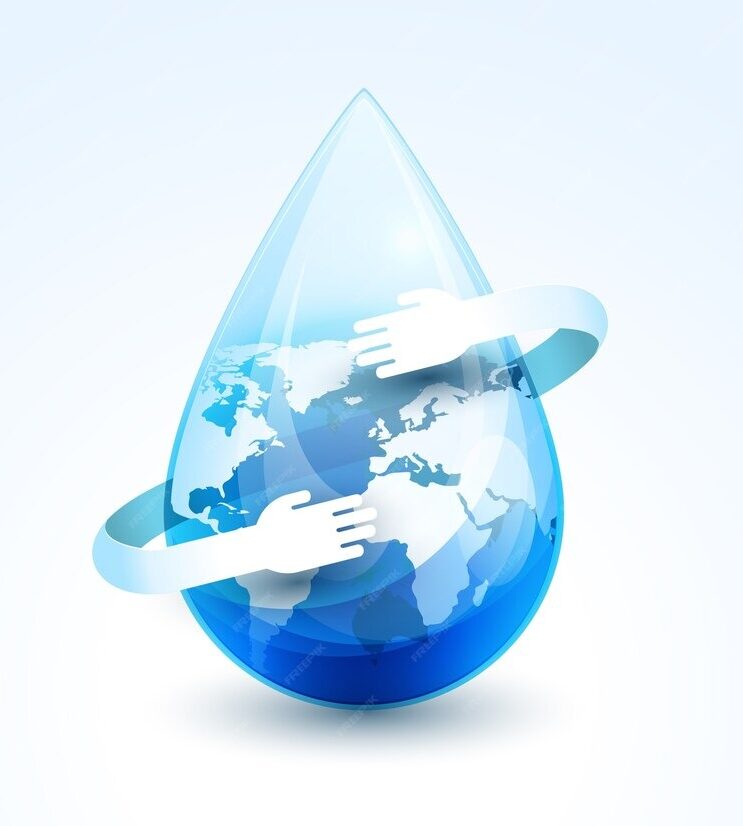
Afghanistan is landlocked with five river basins including Amu Darya Basin, Northern Basin, Kabul Basin (Indus Basin), Helmand Basin and Harirod-Murghab Basin. Its high mountains are the headwater of Amu Darya, Helmand, Hari, Panj, Murghab, Kabul, Farah, Bartang, Kunar and Arghandab rivers, but it uses only 30 percent of its water resources.
Nearly four decades of war, conflicts and political instability decimated the country’s hydrological infrastructures. During the long turmoil, Afghanistan has neither been able to control its water resources nor build new infrastructures. Before the fall of the Islamic Republic of Afghanistan to the Taliban, from 2001-2021 the situation was almost impossible for the government staff and non-government organizations’s employees to travel across the country for the implementation of hydrological projects – corruption and institutional failure were other undeniable factors.
In 2021, the Islamic Republic of Afghanistan collapsed and the Taliban came to power. This re-emergence coincided with a decrease in international aid to Afghanistan including in water and climate change infrastructure projects and an increased water deficiency across the country including in Kabul province, the capital of Afghanistan.
In the traditional society of Afghanistan, women have the responsibility of cooking, washing dishes, washing clothes, taking care of children, cleaning the house and even working as farmers, therefore they are more exposed to the effects of drought, lack of water and lack of hydrological infrastructures in rural areas than men. A drop in underground water level in the urban areas including Kabul city affected women the most as the wells dried up or could no longer provide enough water. For instance, in Khairkhana, Dasht-e-Barchi and Shahrak-e-Omid Sabz areas wells were drying up and waterworks were inactive due to which the people especially women and teenage girls have been waiting in long lineups from morning to evening or vice versa to get water from their neighbors who had deeper wells.
“Climate change worsens the household economy with more stress on women and children,” Assem Mayar, an Afghan water resource expert and former university lecturer told the author. In Afghanistan, women and girls have been barred from going to universities, schools and most offices – both NGOs and government. The absence of their contribution to water-related activities due to the ban on their work sealed the water women’s income venues as a result of which they can neither put food on the table nor purchase needed water, but bear the brunt of poor management of water resources.
Additionally, lack of awareness, restrictions and conflicts in Afghanistan caused the majority of women not to be familiar with the terminology of climate change, its consequences and their role in mitigating them. Therefore, most women deem drought, lack of water and floods as natural phenomena controlled by God, without being aware that as human beings and part of the nation they can hold the government and the international community accountable.
Women’s inclusiveness in government, allowing them to get an education and go to work will prevent a dark future. If the situation remains the same and if the international community and women who work in climate change, water sector and water diplomacy networks continue being indifferent to the absence of women in the water sector in Afghanistan, there will not be water women, women hydrologists and experts in the entire country in the next few years. The voices of Afghan women will remain unheard, challenges will remain unresolved, their economy will get worse, and their mental and physical health will be in danger. Hence, there is a genuine need for immediate action to increase funds to Afghanistan water management, ensure women’s right to get an education and amplify Afghan women’s meaningful contribution to the water sector at national and international levels with more share in decision-making.
Photo: Sayeda Rahimi/saywiw march 2024
“People left their barrels to get water from neighbors with deep wells in Kabul City, Afghanistan”
